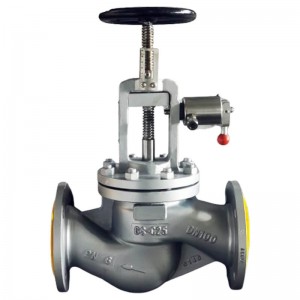In many critical systems, quick closing valves (QCVs) are indispensable safety components. Designed to rapidly shut off the flow of fluids or gases, these valves play a pivotal role in industries like marine, oil & gas, and chemical processing. In this article, we explore why quick closing valves are vital in various industries, the key benefits they provide, and how they enhance safety, efficiency, and regulatory compliance.
1. Enhanced Safety in Critical Systems
Quick closing valves are engineered to isolate hazardous materials quickly in the event of an emergency. For example, in marine systems, QCVs can quickly shut off fuel lines or isolate fire-affected compartments, preventing catastrophic damage. In oil & gas pipelines, these valves prevent overpressure or flow reversals that could lead to explosions.
Key Benefits:
- Instant shutoff: Valve closures occur in seconds, reducing the risk of disasters.
- Protection from hazardous materials: Prevents dangerous substances from escaping, ensuring the safety of crew and environment.
2. Minimized Downtime
In industrial and marine operations, downtime translates directly into lost revenue. Quick closing valves can reduce downtime by ensuring that critical systems are shut off swiftly during both emergency shutdowns and routine maintenance.
Key Benefits:
- Faster repairs: Isolating systems quickly allows for more efficient maintenance.
- Reduced operational losses: Downtime is minimized, improving overall productivity.
3. Protection of Equipment
Whether in high-pressure pipelines or marine vessels, quick closing valves help protect expensive equipment from damage caused by pressure surges or contamination. For instance, they prevent overpressure in systems where sensitive machinery is involved, such as in cooling systems or fuel systems.
Key Benefits:
- Prevents equipment damage: Ensures the integrity of tanks, pipes, and other vital components.
- Reduces maintenance costs: By preventing unnecessary damage, QCVs extend the lifespan of equipment.
4. Regulatory Compliance
In industries governed by strict regulations, such as marine and oil & gas, quick closing valves help companies meet safety standards and environmental regulations. Whether ensuring fire safety on vessels or reducing pollutant leakage in pipelines, these valves are essential for maintaining compliance.
Key Benefits:
- Compliance with safety standards: Meets IMO or API safety regulations.
- Environmental protection: Minimizes the risk of spills or leaks, helping maintain environmental responsibility.
5. Reliable Performance in High-Pressure Systems
Quick closing valves are designed to handle the extreme pressures often encountered in high-pressure systems. Their ability to function reliably under these conditions makes them ideal for use in critical infrastructure.
Key Benefits:
- Pressure resistance: Handles extreme conditions without compromising performance.
- Durability: Long-lasting even in the harshest operational environments.
6. Cost-Effective Long-Term Investment
While the initial cost of quick closing valves might be higher, the long-term savings they provide make them a wise investment. By preventing accidents, reducing downtime, and protecting costly equipment, they offer a strong return on investment.
Key Benefits:
- Lower operational costs: Protects against costly repairs and potential fines.
- Increased system longevity: Quick isolation prevents further damage, extending the lifespan of your system.
Post time: Feb-12-2025

